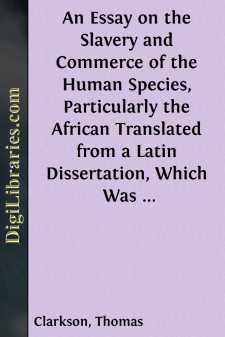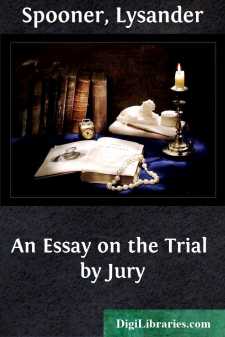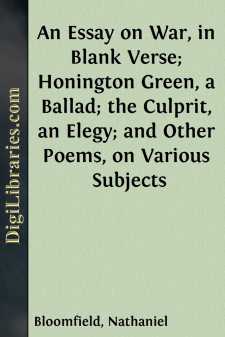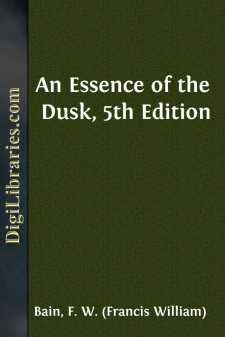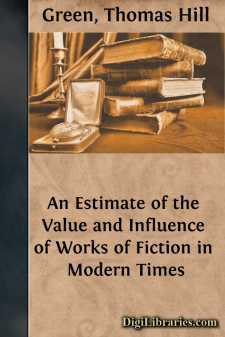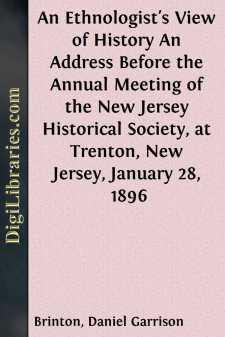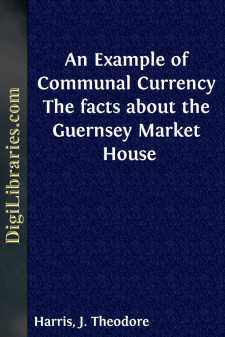Categories
- Antiques & Collectibles 13
- Architecture 36
- Art 48
- Bibles 22
- Biography & Autobiography 813
- Body, Mind & Spirit 142
- Business & Economics 28
- Children's Books 14
- Children's Fiction 11
- Computers 4
- Cooking 94
- Crafts & Hobbies 4
- Drama 346
- Education 46
- Family & Relationships 57
- Fiction 11829
- Games 19
- Gardening 17
- Health & Fitness 34
- History 1377
- House & Home 1
- Humor 147
- Juvenile Fiction 1873
- Juvenile Nonfiction 202
- Language Arts & Disciplines 88
- Law 16
- Literary Collections 686
- Literary Criticism 179
- Mathematics 13
- Medical 41
- Music 40
- Nature 179
- Non-Classifiable 1768
- Performing Arts 7
- Periodicals 1453
- Philosophy 64
- Photography 2
- Poetry 896
- Political Science 203
- Psychology 42
- Reference 154
- Religion 513
- Science 126
- Self-Help 84
- Social Science 81
- Sports & Recreation 34
- Study Aids 3
- Technology & Engineering 59
- Transportation 23
- Travel 463
- True Crime 29
Sort by:
by:
Thomas Clarkson
PART I. When civilized, as well as barbarous nations, have been found, through a long succession of ages, uniformly to concur in the same customs, there seems to arise a presumption, that such customs are not only eminently useful, but are founded also on the principles of justice. Such is the case with respect to Slavery: it has had the concurrence of all the nations, which history has recorded, and...
more...
by:
Lysander Spooner
CHAPTER I. THE RIGHT OF JURIES TO JUDGE OF THE JUSTICE OF LAWS. SECTION I. For more than six hundred years—that is, since Magna Carta, in 1215—there has been no clearer principle of English or American constitutional law, than that, in criminal cases, it is not only the right and duty of juries to judge what are the facts, what is the law, and what was the moral intent of the accused; but that it...
more...
INTRODUCTION The following essay forms the introduction to a famous anthology of the seventeenth century, the Epigrammatum delectus, a Port-Royal textbook published at Paris in 1659. The essay was twice translated into French in the same century, but the use of the text in France did not survive, apparently, the downfall of the Port-Royal movement. It was, however, later adopted by Eton College, where...
more...
ESSAY ON WAR [War for room required by encreased Population.—With Arts of Use and Comfort spring those of War.—Blessings of the Infant State of Society.—Peace cannot last beyond the Infancy of Society.—War defined to preserve the equilibrium of Population.—War between hords of emigrating Stranger Nations.—Invasions on account of violated Women.—Love the strongest and most natural cause of...
more...
CHAPTER I Shakespeare Translations in Norway In the years following 1750, there was gathered in the city of Trondhjem a remarkable group of men: Nils Krog Bredal, composer of the first Danish opera, John Gunnerus, theologian and biologist, Gerhart Schøning, rector of the Cathedral School and author of an elaborate history of the fatherland, and Peter Suhm, whose 14,047 pages on the history of Denmark...
more...
I.May that triumphant Lord protect us, who as he stands in mysterious meditation, bathed in twilight, motionless, and ashy pale, with the crystal moon in his yellow hair, appears to the host of worshippers on his left, a woman, and to those on his right, a man.There lived of old, on the edge of the desert, a rájá of the race of the sun. And like that sun reflected at midday in the glassy depths of...
more...
INTRODUCTION Thomas Hill Green was born in Birkin, Yorkshire, April 7, 1836. His early education was acquired first at home under his father, the rector of Birkin, then at Rugby, where he was sent at the age of fourteen. In 1855 he entered Balliol College, Oxford, and came under the influence of Jowett, afterwards famous as Master of Balliol and translator of Plato. Though he matured early, Green was...
more...
PREFACE The position taken by the writer of this volume should be clearly understood. It is not the view known as antivivisection, so far as this means the condemnation without exception of all phases of biological investigation. There are methods of research which involve no animal suffering, and which are of scientific utility. Within certain careful limitations, these would seem justifiable. For...
more...
The intelligent thought of the world is ever advancing to a fuller appreciation of the worth of the past to the present and the future. Never before have associations, societies and journals devoted to historical studies been so numerous. All times and tribes are searched for memorials; the remote corners of modern, medieval and ancient periods are brought under scrutiny; and going beyond these again,...
more...
PREFACE Those who during the past thirty or forty years have frequented working men's clubs or other centres of discussion in which, here and there, an Owenite survivor or a Chartist veteran was to be found, will often have heard of the Guernsey Market House. Here, it would be explained, was a building provided by the Guernsey community for its own uses, without borrowing, without any toll of...
more...


